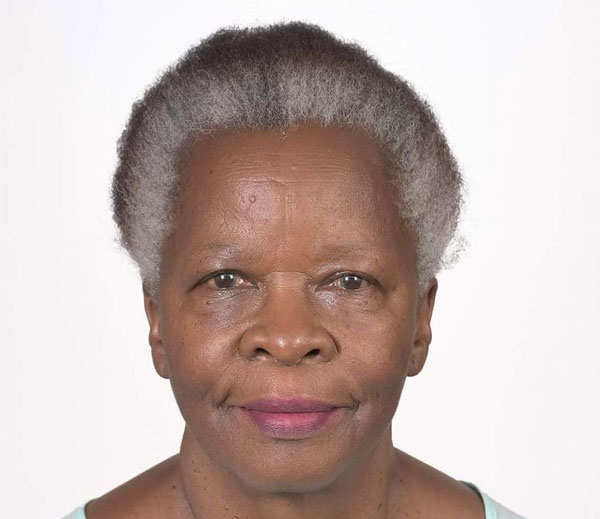
OBITUARY | RONALD MUSOKE | Prof. Rachel Nandawula Musoke, 78, passed away on May 30 after distinguishing herself in a 40-year medical career at Kenyatta National Hospital in Nairobi, Kenya, where she is more known and celebrated than in her native Uganda.
She began working as a neonatologist at Kenyatta Hospital in 1977 until she retired in 2021.
“I can never forget Kenyatta National Hospital. This is where I have grown up,” she told her colleagues at her farewell party last year. She returned to Uganda last year.
Prof. Musoke was also an accomplished academic with 70 publications in peer reviewed journals, 16 of which were published as a first author. Her first publication was in 1968 and the most recent was released on May 02, this year.
During her requiem mass on June 1 at St. Paul’s Cathedral, Namirembe, in Kampala on June 01, her colleague Prof. Ruth Nduati represented colleagues from the University of Nairobi’s Department of Paediatrics and Child Health. She shared a lot from the time she first met Prof. Musoke in 1977 as a first year medical student at the University of Nairobi.
“She was an educator,” she said.
At graduate level, Prof. Musoke supervised 89 Master’s degrees in Paediatrics and Child Health; many of these theses went on to be published and inform public policy in Kenya.
Even after her retirement, she had continued with the department’s online teaching activities. She also continued with her supervisory role of students on the MA programme. She had also remained active on the Department’s WhatsApp group.
As a neonatologist; a specialist who cares for new born babies; especially the sick or those born prematurely, Prof. Musoke was for 40 years a mainstay inside the newborn baby ward in Kenya’s national referral hospital. She saved many little babies, many of whom were born with weight problems.
In an extended feature called Health Digest that was broadcast by KTN in May, last year, shortly after her retirement, Prof. Musoke, a petite and soft spoken woman with silver hair recalled how the care of babies born with weight of 900 grams or lower was never an easy job.
“When they were born, people would often wonder if the baby was indeed “a human being,” she said. But it was always “gratifying meeting them later in life; all grown up.”
“When you look after a small baby even less than a kilo and you meet a mom along the road and the small person is now taller than you and the mother is happy, I get happy too.”
The 1980s and 1990s had their challenges. There was hardly any useful knowledge on how to care for new born babies. Specialized equipment was limited too.
Yet, despite the myriad challenges, there were inspiring stories of mothers leaving Kenyatta Hospital with broad smiles—their babies having been miraculously saved. But not all mothers were lucky. Many left empty handed. But Prof. Musoke said they left knowing the doctors did their best to try to save the babies.
“Neonatology has evolved so much. Many of the very many tiny babies never used to survive; now they survive. They have their medical challenges.”
Back in the day; it was basic care; feeding, keeping the baby warm and making sure that moms are there.” “Of course with time, technology has evolved. By the time I went to the UK (1977), people were starting to ventilate babies so I picked the idea of ventilation of babies from there.”
Soon new technologies became available. That was at the turn of the millennium. One particular technology known as “Kangaroo care” became a game changer at Kenyatta Hospital.
Prof Rachel Musoke is very inspiring, her graceful nature and calm demeanour is always amazing #proudtobeapaediatrician @UPAuganda pic.twitter.com/kqZqI0hQdq
— Sabrina Kitaka (@SabrinaKitaka) November 18, 2021
Kangaroo care is a method of caring for babies until they gain weight, by ensuring they are well fed, and the mothers are always there for their children. The practice actually originated from Colombia in Latin America but Prof. Musoke is credited for having pioneered it at Kenyatta Hospital.
When she first heard about it from a colleague who had just returned from a conference, she wasted no time in sending a team of two to Bogota, the Colombian capital, to learn a little more about it. Upon their return, a specialized ward was immediately set up. Today, the hospital has a fulltime Kangaroo Care Centre.
“I am happy that we are now able to save babies that we were not able to save before. We have more information on how to look after them, a lot more are being saved,” she said last year during her send off into retirement.
Before she drove out of Kenyatta Hospital in her small vintage car, she received gifts from her colleagues among which included a figurine of a smiling woman doing Kangaroo mother care. She smiled back at the statue saying the gift would be a good reminder of all the little ones she looked after in the Kangaroo position.
Early life
Born to Asanasiyo Masembe and Manjeri Namutanyi on Feb.8, 1944, Rachel Musoke née Masembe began her education journey in 1951. She went to Bamusuta Primary School and Ndejje High School where she sat her Primary Leaving Examinations in 1955.
In 1956, she joined Gayaza High School for her O-Level. Prof. Musoke’s journey in medicine began right here after being encouraged by her big brother to focus on physics and chemistry. It also helped that Gayaza High School at the time was the only school in the entire country teaching physics and chemistry.
In 1962, she went to King’s College Budo for her “Higher School’ or A-Level. In 1964, she joined the University of East Africa, Makerere College, from where she graduated with a Bachelor’s degree in Medicine in 1969. Here, she was one of only eight girls in a class of 60 students and one of two African girls.
Yet, despite the racial differences, Prof. Musoke said, the girls were able to create a strong bond. “We would celebrate each other’s strengths, gains and special days.”
She would return to her alma mater for her Master’s degree in Medicine specialising in Paediatrics. She would later proceed to the UK for a neonatology fellowship. However, although she had planned to return to Uganda since she had left her husband, Apollo Musoke Kiggundu, behind in what was then a turbulent country under President Idi Amin, she ended up in Kenya.
“I had left my husband in Uganda not knowing I would not return there. Something happened at that time and my husband decided to come to Kenya and that is how I ended up not going back,” she told KTN in May, last year.
She found a home in Nairobi teaching at Nairobi University’s Department of Paediatrics and Child Health while also consulting at Kenyatta National Hospital’s Paediatrics Unit. It is here that she distinguished herself in paediatrics.
Prof. Musoke is also credited with giving hope to vulnerable babies who were born with HIV. She recalled how it was not easy working with them. At a time when many lay desperate in their tiny beds at Nyumbani Children’s Home in Nairobi, anti-retroviral therapy was unaffordable for even rich Kenyans.
As a result many children died prematurely. But once a window for putting them on ARVs opened she did even when she knew there was no assurance of continuity. Some survived and are now adults.
Prof. Musoke is credited for mentoring many Kenyan doctors. One of them, Dr. Wairimu Kimani, a neonatologist at Kenyatta National Hospital told KTN that the “very strict” professor had pushed her to specialize in neonatology.
Another, Dr. Douglas Makewa, the head of Paediatrics at the same hospital remembers Prof Musoke for her perseverance during the hard times when there were shortages of supplies at the hospital of even simple things like soap. “She would tell us to bring remnants of soap at home for us to wash our hands.”
Dr. Irene Inwani, the Director Clinical Services at Kenyatta Hospital, said Prof. Musoke who left behind an adult son and daughter has been more of a mother to her. “When I joined paediatrics, she was my allocated mentor and she was a strict mother who actually made sure I did my homework.”
But Prof. Musoke said she had “no regrets at all.” “Some may say I was strict and they are telling me now, but I do not think I would have done it differently. I was only following what we were taught in medical school; that one had to follow specific things for specific things to happen.”
Outside the babies’ ward, Prof. Musoke enjoyed music, a hobby she nurtured in her youthful days with Kampala Singers Choir. Once she settled into life in Nairobi, she became a member of the Nairobi Music Society.
Her love for music has been passed onto her first born son, Fred Kiggundu Musoke, who is now a music director at Kampala Music School. Prof. Musoke is survived by her son and daughter, Samali Namuddu Musoke. Prof. Musoke who died on May 30 after falling off her exercise bike was buried on June 2 at Maya, along Masaka Road in Wakiso District.
 The Independent Uganda: You get the Truth we Pay the Price
The Independent Uganda: You get the Truth we Pay the Price



Prof. Rachel Musoke has left a mark, having trained and mentored many, we cherish and celebrate
She looked after my newborn who had breathing problems after cs and she pulled through. Will never forget me calling her any tym the baby got unwell for free consultation.
I remember the smile of reassurance on yur face that took away the fear i had.
Rest in peace Proffessor